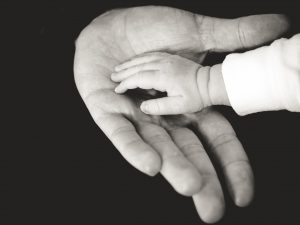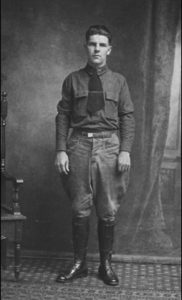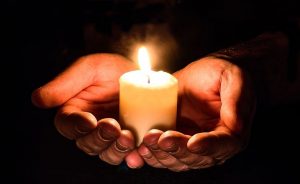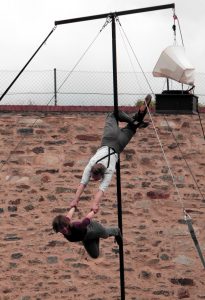It’s Like Being Wrapped in A Warm Blanket on A Cold Night
There are way too many people stumbling around out in the darkness in need of a warm blanket. Those of us who have found our blanket need to be sharing blankets with others.
This past Sunday our Pastor’s message consisted of members of the congregation sharing what our church (Tisdale UMC) meant to them. This was a combination of long-term and recent members and some who weren’t.
 Just like everyone of us is different and unique, so were their stories. Even with all the differences each one expressed common feelings of the warmth of the church. (Just like a warm blanket on a cold night.) It didn’t matter what their situation was, they felt wrapped up in warmth.
Just like everyone of us is different and unique, so were their stories. Even with all the differences each one expressed common feelings of the warmth of the church. (Just like a warm blanket on a cold night.) It didn’t matter what their situation was, they felt wrapped up in warmth.
Having grown up in this church I assumed this was how all churches were. As I got older, I had a recurring conversation with people who had moved away and struggled to find a church that had this same warmth. This doesn’t mean that every person is looking for this warmth, but once they’ve experienced it, they want it.
This warm feeling is bigger than the people, bigger than the church, it’s God’s loving arms.

Too many people are cold and don’t even know it. If you find someone that’s cold give them a warm blanket of love and invite them in out of the cold.













 It’s easy to let the negative outweigh the positive. We need to be intentional about looking at the positive. When Robinson Crusoe was shipwrecked on the island, he made a list of the negatives and positives of his situation. Making this list allowed him to see that things weren’t as bad as they first appeared.
It’s easy to let the negative outweigh the positive. We need to be intentional about looking at the positive. When Robinson Crusoe was shipwrecked on the island, he made a list of the negatives and positives of his situation. Making this list allowed him to see that things weren’t as bad as they first appeared.


 Imagine yourself at a circus watching all the amazing trapeze artists and high wire acts. After the tight rope walker goes across the high wire the ring master asks the crowd if they would like to see him ride a bicycle across. Everyone applauds and says yes. Next the ring master asks if they would like to see him go across with someone riding on his shoulders. The applause and screams are louder than before. Then the ringmaster asks…who will volunteer to be that person? The crowd instantly is quiet. Oh, ye of little faith.
Imagine yourself at a circus watching all the amazing trapeze artists and high wire acts. After the tight rope walker goes across the high wire the ring master asks the crowd if they would like to see him ride a bicycle across. Everyone applauds and says yes. Next the ring master asks if they would like to see him go across with someone riding on his shoulders. The applause and screams are louder than before. Then the ringmaster asks…who will volunteer to be that person? The crowd instantly is quiet. Oh, ye of little faith. We only need to believe a mustard seed amount for miracles to happen. It’s sad how many people don’t even have this much faith. God will never expect us to do more than we can. The problem is that we don’t believe. There are examples of amazing things all around us if we will just look. The more we believe in God and ourselves the bigger the miracles will be.
We only need to believe a mustard seed amount for miracles to happen. It’s sad how many people don’t even have this much faith. God will never expect us to do more than we can. The problem is that we don’t believe. There are examples of amazing things all around us if we will just look. The more we believe in God and ourselves the bigger the miracles will be. We are made in God’s image but live in a fallen world. It is hard to see through the haze of the fallen world to the miracles that happen. In the story of the mulberry tree above, it says, if you have faith, it will obey you…it doesn’t say anything about seeing it.
We are made in God’s image but live in a fallen world. It is hard to see through the haze of the fallen world to the miracles that happen. In the story of the mulberry tree above, it says, if you have faith, it will obey you…it doesn’t say anything about seeing it.

 In Luke 16:19-31, Jesus talks about the “
In Luke 16:19-31, Jesus talks about the “ So, why did Lazarus make it to Heaven and the Rich Man ended up in Hell? It’s pretty simple really. The Rich Man didn’t believe. You can’t earn your way into Heaven by doing good,
So, why did Lazarus make it to Heaven and the Rich Man ended up in Hell? It’s pretty simple really. The Rich Man didn’t believe. You can’t earn your way into Heaven by doing good, 


 Arthur Berry
Arthur Berry


 Everyone can be found.
Everyone can be found. Near the end of his life he was doing a show in San Diego but stumbled drunk off stage after only two songs. His friend, country performer Minnie Pearl tried to sober him as they rode around town in the back seat of his Cadillac so he could do his second show. She got him to join her in singing “I Saw the Light” thinking it might help sober him, but after one verse, Hank put his head in his hands and said, “O Minnie, Minnie, I don’t see no light. There ain’t no light.”
Near the end of his life he was doing a show in San Diego but stumbled drunk off stage after only two songs. His friend, country performer Minnie Pearl tried to sober him as they rode around town in the back seat of his Cadillac so he could do his second show. She got him to join her in singing “I Saw the Light” thinking it might help sober him, but after one verse, Hank put his head in his hands and said, “O Minnie, Minnie, I don’t see no light. There ain’t no light.”



 One boat began falling behind. Not enough fuel. There had been plenty of coal for the trip, but not enough for a race. As the boat dropped back, an enterprising young sailor took some of the ship’s cargo and tossed it into the ovens. When the sailors saw that the supplies burned as well as the coal, they fueled their boat with the material they had been assigned to transport. They ended up winning the race but burned their cargo. Their cargo was gone, and they couldn’t get it back.
One boat began falling behind. Not enough fuel. There had been plenty of coal for the trip, but not enough for a race. As the boat dropped back, an enterprising young sailor took some of the ship’s cargo and tossed it into the ovens. When the sailors saw that the supplies burned as well as the coal, they fueled their boat with the material they had been assigned to transport. They ended up winning the race but burned their cargo. Their cargo was gone, and they couldn’t get it back.
 Time is a commodity that can only be spent. You can’t add to it, only subtract.
Time is a commodity that can only be spent. You can’t add to it, only subtract.

 If no one is there when we jump this doesn’t work so well. The more times we’ve jumped, and no one is there to catch us, the more untrusting we become. Faith does not mean we have to see the person catching us, we just need to know that they are there. A relationship needs to be developed prior to the jump. We need to listen to the Catcher’s voice and know that He will catch us.
If no one is there when we jump this doesn’t work so well. The more times we’ve jumped, and no one is there to catch us, the more untrusting we become. Faith does not mean we have to see the person catching us, we just need to know that they are there. A relationship needs to be developed prior to the jump. We need to listen to the Catcher’s voice and know that He will catch us.
